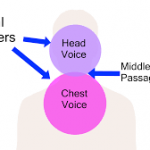The voice is made of living tissue which makes it susceptible to:
- Overuse
- Misuse & Abuse
- Bad Technique
- Inefficient Speech Patterns
- Accident
- Disease
The quality of one’s speaking voice is really important as even professional singers only use their singing voices for 20-25% each day, the rest of voice use tends to be speech. Inefficient speaking patterns create the muscle memory for inefficient singing patterns. If in doubt book to see a speech therapist at a specialist voice clinic.
Below are some things to watch out for and to be aware of with tips on efficiency and hydration:

Vocal Abuse
Avoid:
- Raising the voice, loud talking, shouting, yelling
- Projecting the voice with poor technique
- Speaking or singing at an inappropriate pitch
- Speaking or singing with an inappropriate register
- Throat clearing
- Coughing
- Speaking/singing with a dry throat
- Speaking/singing in dusty, smoky or dry environments
- Speaking/singing with laryngitis or a cold or with swollen vocal folds
- Bad postural alignment
- Bad and noisy breathing patterns and habits
- Hard Glottal attacks
- Speaking/singing with tension

Acid Reflux
Avoid:
- Eating large meals or lying down right after a meal
- Eating a heavy meal and sleeping on your back
- Eating certain foods: citrus, tomato, chocolate, mint, garlic, onions, or spicy or fatty foods
- Drinking alcohol, carbonated drinks, coffee, or tea
- Smoking
- Taking aspirin, ibuprofen or blood pressure medications

Vocal Overuse
Avoid too much:
- Talking
- Singing
- Laughing
- Coughing
- Vocalising (this includes humming!)

Stop if you feel a Tickle, Scratch or Cough
Avoid vocal constriction – if you feel a tickle, scratch or coughing sensation whilst you are singing stop – you are probably constricting the voice. Seek the advice of an experienced singing teacher or voice professional.
- The vocal folds have no nerve endings
- You can’t feel when they’re tired or swollen – they “just don’t seem to work”
- Sure signs of vocal fold swelling: hoarseness or raspiness in the sound (as the folds can’t achieve full closure) a sense of having to work a lot harder than normal to get the same results.
- If you could feel how much damage you were doing, you’d stop straight away!

Efficiency
Always aim for efficiency in voice use:
- Efficiency is defined as the ability to avoid unnecessary effort
- The definition of vocal efficiency is using the right amount of effort, in the right place, at the right time. No more. No less.
- Effort tends to spread – sometimes beneficially, sometimes detrimentally
- Singing requires effort!
- It’s vital to discriminate between necessary effort and unwanted tension
- A good technique means efficient voicing

Hydration
Stay hydrated:
- An average person requires 4 litres of water per day
- Athletes need more like 6 to 8
- Water can take 4 hours to get into the system
- Thirst is a poor indicator of dehydration (loss of concentration can be one of the first)
- Sip water little and often



